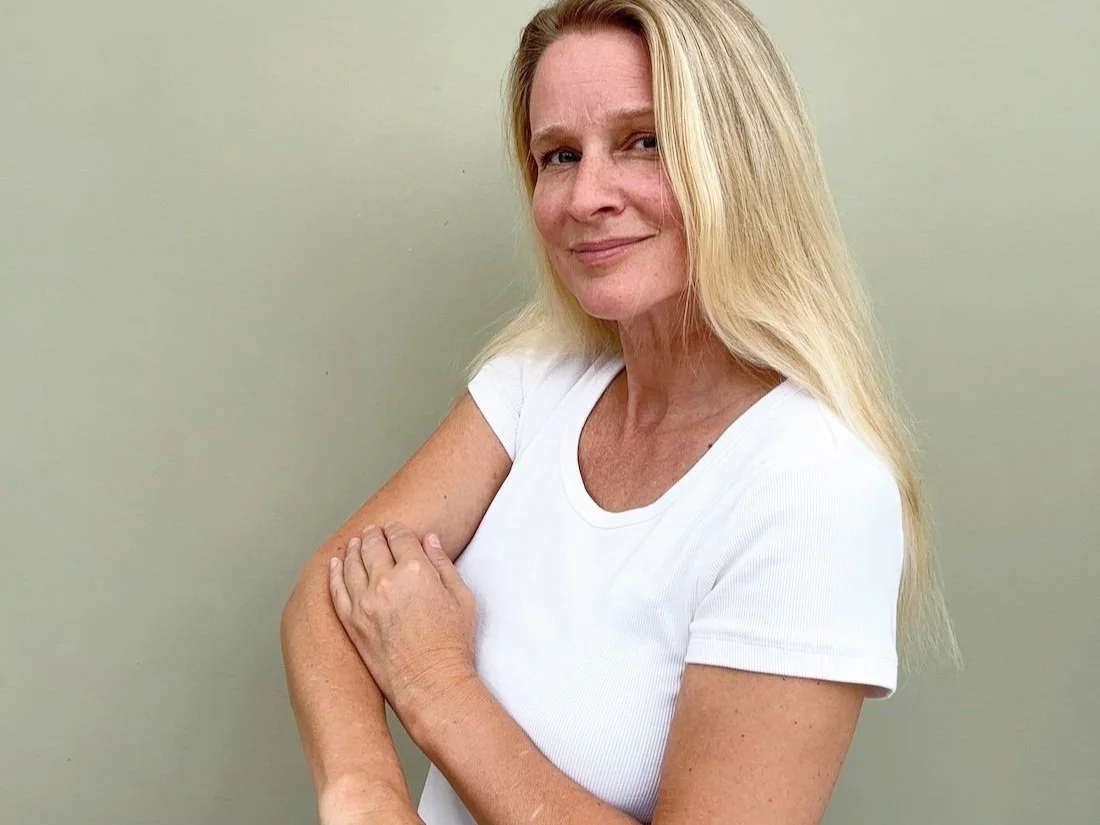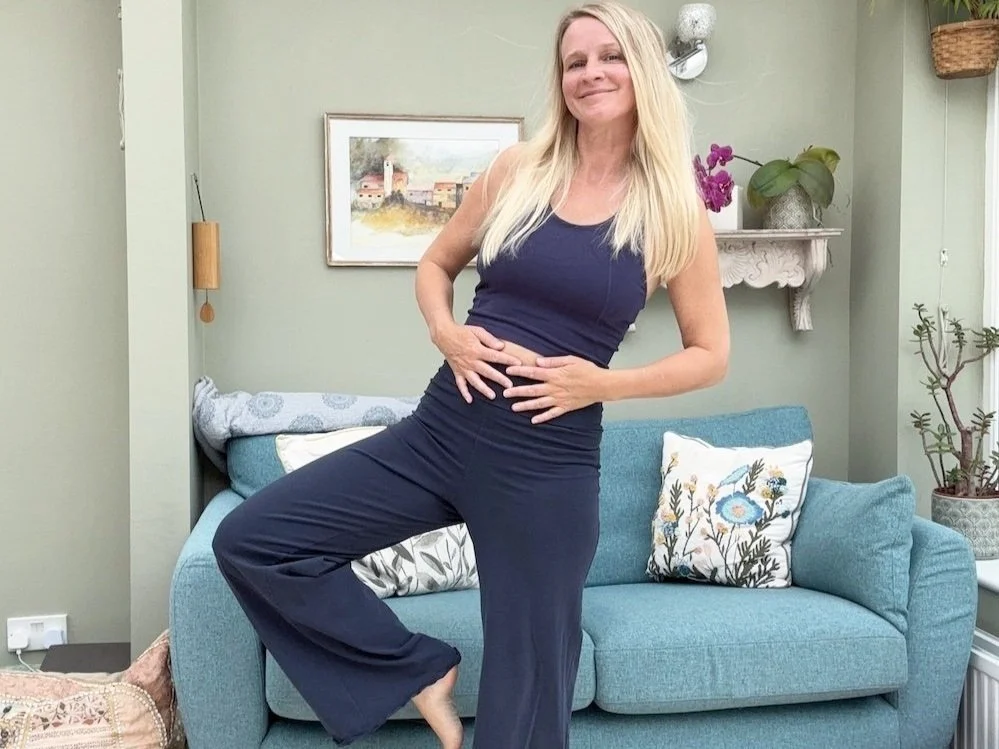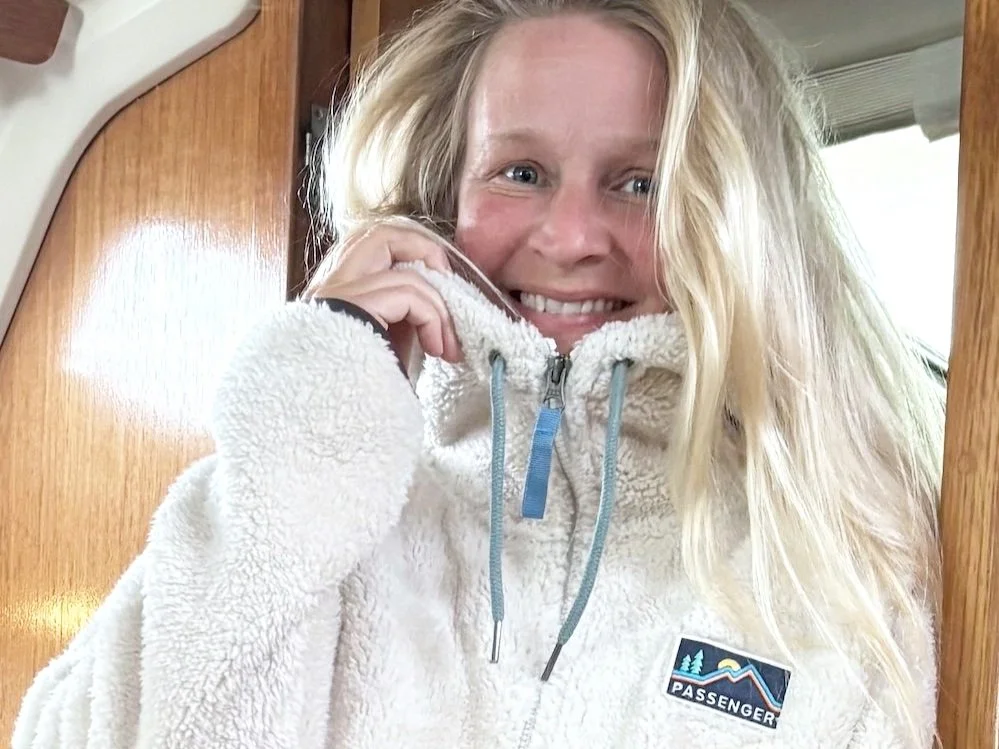caring for your skin naturally with clothing
favourite dress by Aspiga
Clothing
Some of the hardest and most expensive changes I had to make were with clothing. Being based in the Northern Hemisphere, we're talking about 10 months of the year where our entire body needs protecting, not just in winter months!
When I first started out I discovered bamboo clothing, which is not only the softest, comfiest and healthier clothing to have close to your skin, it’s also extremely sustainable, growing at what can be 1 metre a day compared to cotton which can take months to become established and it uses a lot less water (it takes 2,700 litres of water to make just one cotton tshirt! Bamboo is more like 200-300 litres).
We are now much more aware of the horrors of inhaling synthetic fibres can have on our bodies and the environment. Polyester is made through a chemical reaction involving coal, petroleum, air, and water. The primary raw materials are ethylene glycol and terephthalic acid, made with coal and petroleum. The chemicals used in the process of making the clothing can cause many side effects, with hormonal and metabolic disruption, inflammation, respiratory conditions amongst the list of health hazards that many textile workers have to endure with skin irritation being a predominant factor.
So this is also a particularly important factor to consider if you suffer with sore skin such as eczema or dermatitis, just how much of this chemical residue is left in the fibres? Wearing breathable, hypoallergenic natural fibres such as organic cotton, bamboo, hemp and linen will be much kinder to your skin (and general overall health) than polyester.
Not forgetting of course, the environmental impact - 92 million tonnes of clothing end up in landfill each year, which is shocking enough! Just keep in mind however; 52% of fibres produced globally in 2020 were polyester (which is not biodegradable). We have microplastics destroying marine life and now a recent study has revealed that 77% of humans tested, contained microplastics in their blood !
But just to step back to our own reality, although the majority of the clothing in our household is natural, organic and plant based, I still struggle to let go of an old fleece - I just find them so good in strong winds (especially for our outdoor pursuits) and lightweight. I also own a very soft snuggle fleece which I’ve had for about 15 years that I always wear, ironically, when i’m feeling poorly. Some things, there are no replacements for!
Recommendations for organic clothing using natural fibres:
These are some of my favourites companies:
favourite lounge pants from Luva Huva, sports top from BAM
Basics, yoga gear, home wear and underwear
Earth wardrobe is a very affordable option, a comfy, sustainable, organic cotton or bamboo t-shirt is just £12.
A favourite artist of mine who prints her work on to bamboo/ organic cotton tshirts: www.saharaboston.com, I love her ethics and dedication to her beautiful work.
recycled, warm fleece
Other ethical clothing:
www.passenger-clothing.com if you do still wear fleeces, these guys are great for some excellent recycled fleeces
For higher end, beautiful sustainable, organic cotton dresses etc;
New windproof, waterproof, ethical coat put to the test
Outdoor gear:
www.finisterre.com - excellent, waterproof ethical clothing. I’ve just bitten the bullet and recently purchased an expensive waterproof jacket from them - the aim is to replace so called recycled waterproof jackets that are not waterproof! - hoping this will keep for 10 years +… so far so good, definitely 100% waterproof and windproof. It’s absolutely essential for me as I walk daily and do many outdoor activities.
nothing better than splashing in puddles in a dress
Children’s clothing:
www.kite-clothing.co.uk - firm favourite, ethical, organic, affordable. Keep an eye out for their amazing sales that happen a couple of times a year!
www.welovefrugi.com - best ‘spinney’ dress
Vinted is an excellent source for second hand but barely worn items. I’ve sold and found some great bargains on there.
Footwear
This is a hit and miss area for me. I’ve tried a few ethical companies now and not always had success. Some ethical, vegan ballet pumps which have fit me perfectly and are so comfy are from www.allbirds.co.uk and a variety of their shoes are ethical, for example, some of the trainers are made from eucalyptus tree fibres. I have used www.rocketdog.co.uk for simple trainers. I contacted them recently about their company ethics and their response was detailed and thorough enough that I felt reassured.
Vinted is an excellent source for second hand but barely worn items of clothing and shoes. I’ve sold and found some great bargains on there.
Last thoughts
For me, one of the biggest things I look for in a company is their transparency. If you ever feel unsure about a company’s ethics or you find they are not very transparent when you’re trying to research information about their sustainability or how the product has been made, then an excellent resource, supported by Emma Watson, is www.goodonyou.eco I have the app, it’s free and an excellent source of information about a company’s morals, looking at their labour, environmental policies and animal ethics.
You can also keep an eye out to see if a company is B Corp registered as if a company has been certified by B Lab, they meet high standards of social and environmental performance, transparency, and accountability.
One of the most important things to consider is; what is this material likely to do to my body? I feel most comforted when I know myself and my family are, the majority of the time, wearing sustainable, ethical, organic, plant based fibres.






